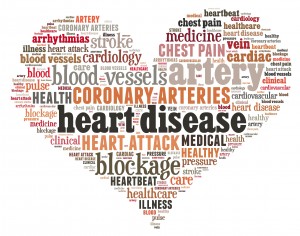-
Mayo Clinic Q & A: Regardless of risk, take steps to protect heart health
DEAR MAYO CLINIC: I am a 37-year-old man and have no health problems, but both of my parents have heart disease. My dad had his first heart attack at age 50. Are there things I can do now to prevent it, or is heart disease inevitable for me because of my family history?
ANSWER: Based on your family history, your risk for heart attacks is higher than the risk of a person without that kind of history. But that does not mean heart attacks are inevitable. A thorough medical evaluation can help determine your specific risk of developing heart problems. You can also take steps to help protect your heart health, no matter what your risk level.
A family history of heart attacks — especially one in a parent younger than 55, as in your father’s situation — is a major risk factor for the type of heart disease known as coronary artery disease, sometimes called CAD. Coronary artery disease develops when the major blood vessels that supply your heart with blood, oxygen and nutrients — your coronary arteries — become damaged or diseased. Cholesterol-containing deposits, or plaques, and inflammation in your arteries are usually the source of coronary artery disease. There are many factors that may cause coronary artery disease, including high cholesterol, diabetes mellitus, smoking, obesity and high blood pressure, to mention some.
When plaques build up, they narrow the arteries. That lowers blood flow to your heart. Over time, decreased blood flow may cause chest pain, shortness of breath and other CAD symptoms. A complete blockage of one of the coronary arteries can lead to a heart attack.
Sometimes a small plaque of fat inside an artery breaks free and causes what is called an acute clot. The clot blocks the blood flow that feeds the heart muscle, leading to a heart attack. That means even people who do not have advanced artery blockages can still develop a heart attack.
People like you who have a family history of heart disease often benefit from a number of medical tests that can identify early signs of disease. They may include an imaging scan of your heart to check for calcium deposits, and scans of the arteries in your neck to check for plaque buildup. Your doctor may also recommend tests to check the function of the inner layer of your arteries or some tests to assess the “biological age” of your vessels.
It also may be useful for you to have tests to rule out blockages or stiffness of the arteries in your legs. Blood tests can show if you have other risk factors that sometimes run in families with heart disease.
If tests reveal early signs of buildup in your coronary arteries, your doctor may prescribe medication to help. For example, cholesterol-lowering drugs may lower your risk for additional plaque deposits in your coronary arteries. Other medications may be helpful, too, depending on your needs.
Lifestyle choices also can make a big difference in preventing and treating heart disease. For example, smoking or using other tobacco products substantially raises your risk for heart disease. If you smoke or use tobacco, stop as soon as possible. If you need help, ask your doctor for programs in your area that offer support.
A healthy lifestyle that promotes physical activity benefits your heart, too. For people who are generally healthy, exercising for about 30 minutes most days of the week is typically recommended, although any increase in physical activity in a sedentary person certainly will be helpful. Eating a diet that is rich in fruits, vegetables and whole grains, and low in salt, animal fats or processed foods, also can help protect your heart. Regular exercise and a healthy diet often combine to help many people get to and stay at a healthy weight — another important factor in lowering your heart disease risk.
For details on what’s best for you, talk to your doctor. He or she can assess your heart disease risk and work with you to make a plan to manage that risk. Even with your family history, there are ways for you to stay heart-healthy. — Francisco Lopez-Jimenez, M.D., Cardiovascular Diseases, Mayo Clinic, Rochester, Minn.







